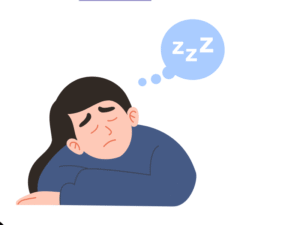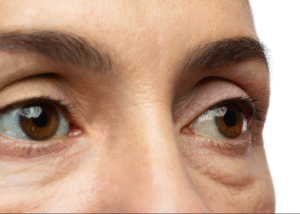Chronic EBV (Epstein-Barr Virus) Symptoms, Causes , and Treatment
The Epstein-Barr virus (EBV) is one of the most common human viruses worldwide. A type of herpes virus, EBV is best known for causing infectious mononucleosis, but in some cases, it can lead to chronic and even severe health issues. In this guide, we’ll explore the symptoms, causes, and prevention strategies for EBV and cover important information on chronic active Epstein-Barr virus infection.
Table of Contents
What Is the Epstein-Barr Virus (EBV)?
EBV is a herpes virus that spreads mainly through saliva, earning it the nickname “the kissing disease.” Once infected, the virus becomes latent in the body, often reactivating later in life. While many people don’t experience any symptoms, others may face prolonged fatigue and other chronic conditions. The virus spreads easily, and most individuals get infected with EBV during childhood or adolescence.
How Does EBV Infection Spread?
EBV infection spreads through:
Saliva (kissing, sharing utensils or drinks)
Blood and semen
Organ or blood transplants
It’s classified as an infectious virus, and the infection is very common across all age groups.
Common Symptoms of Epstein-Barr Virus
After becoming infected with EBV, symptoms usually appear 4 to 6 weeks later. These may vary depending on age and immune system health.
Common symptoms include:
Fever
Fatigue
Sore throat
Swollen lymph nodes
Rash
Enlarged liver or spleen
What Are the Serious Symptoms of EBV?
In rare cases, EBV leads to serious complications, particularly in people with a weakened immune system. These may include:
Severe liver inflammation
Hepatitis
Autoimmune complications
Certain types of cancer
Neurological symptoms
Chronic Active Epstein-Barr Virus Infection
Chronic active Epstein-Barr virus infection (CAEBV) is a rare but serious condition in which the virus remains active over a long period. Unlike typical EBV infections that resolve on their own, chronic active Epstein–Barr virus infection continues to cause symptoms and may become life-threatening.
Symptoms of Chronic Active EBV
Chronic active Epstein-Barr virus infection (CAEB
Persistent fever
Enlarged liver and spleen
Swollen lymph nodes
Anemia
Fatigue that doesn’t improve
Liver dysfunction
Skin rashes
Lymphoproliferative disease
What Causes Chronic EBV?
While the exact cause is not fully understood, chronic active Epstein-Barr virus may occur when the immune system fails to control the infection. Some people may have genetic predispositions or underlying conditions that weaken their ability to control the infection.
Treatment for Chronic Active EBV
There’s no specific treatment for EBV, and managing chronic active EBV is complex. Options may include:
- Rest and hydration
- Pain and fever reducers
- Treatment for chronic symptoms or related conditions
- Monitoring for autoimmune disease or cancer development
- Immunosuppressive therapy
- Hematopoietic stem cell transplantation (in severe chronic active infection)
- Supportive care for symptoms like fatigue and anemia
How to Prevent Yourself from These Symptoms
Prevention Tips:
Avoid sharing drinks, food, or toothbrushes
Wash hands frequently
Avoid close contact with infected individuals
Maintain a strong immune system
Manage stress and chronic illness
Currently, there is no vaccine to protect against EBV, though one is under development. Until then, prevention is the best strategy to protect against EBV infection.
How Is EBV Diagnosed?
- Monospot Test (Heterophile Antibody Test)
- Complete Blood Count (CBC) with Differential
- Liver Function Tests (LFT
Who Is at Risk for Chronic Active EBV?
Teens and young adults (more likely to show initial symptoms)
People with immune disorders
Individuals undergoing organ transplants
Those with genetic predispositions
Some people who get infected with EBV may not experience any symptoms, but they can still carry and spread the virus. However, patients with chronic active Epstein-Barr experience ongoing complications.
Final Thoughts
The Epstein-Barr virus is incredibly common, and most people recover with little to no issues. However, it can sometimes lead to chronic illness, autoimmune disease, or cancer in vulnerable individuals.Being informed about EBV symptoms, how it spreads, and how to reduce your risk can make a major difference. If you experience symptoms like fatigue or swollen glands that don’t improve, seek medical attention. Early care is essential to managing EBV infections in children, teens, and adults.



